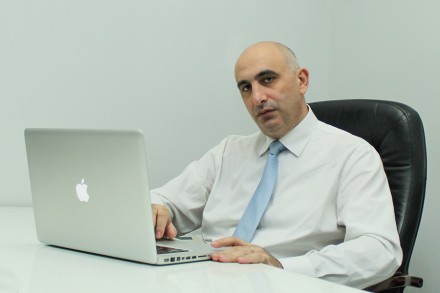The Anti—Corruption Coalition, which includes over 70 CSOs will not participate in the upcoming session of the Anti-Corruption Council.
“I shall not be able to attend the upcoming session of the Anti-Corruption Council due to overload. As for the Anti- Corruption Coalition, I would say that the Coalition has not authorized any organization to participate on my behalf,” AYLA President Karen, Zadoyan, Coordinator of the CSO Anti-Corruption Coalition Secretariat said.
Formerly, the Government had announced a tender for NGOs for applications to participate in the Council. The Coalition had set a number of requirements, among which to increase the number of NGOs in the structure of the Council, establishment of the independent anti-corruption body and multi-functional working group on the issues of decriminalization of illicit enrichment, and other issues. The requirements were not fulfilled and as a result the CSOs refrained from participation in the tender. In addition, only one opposition faction of the National Assembly decided to be involved in the composition of the Council.
“The best option is that each institutional body should act a format that was originally intended,” Karen Zadoyan said. “If for some reason this format is not supported, then, in my opinion, it should not be operated in an incomplete composition. A new political platform for the disputations should be created in order to reveal the reasons of for the failure of the model. So, in case of failure, the initiative shall not be furthered and led to ultimate failure. It is necessary to stop at the moment, and at least temporarily develop a new institutional model, where the representatives of the NA opposition parties and CSO representatives would be included in such a wide range as the CSO Anti-Corruption Collation had planned.”
Instead of discussing the issues mentioned above, the government included in agenda of the upcoming session of the Anti-Corruption Council two matters of secondary nature: presentation of the current situation in the field of freedom of information, and discussion of the current issues as well as the issues on the establishment of a Public Councils at the Ministers.
“There is illusion that in reality the civil society does not participate in the activities of the council, another thing is that different NGOs, as well as public and political figures, media representatives and other individuals may be invited to the sessions. There may be reporters as well. On the same logic they can be invited to the government session, and report the agenda issues. This, in my opinion is not a correct approach. There is an unsuccessful attempt to create an illusion that in fact the NGOs participate in the activities of the Council.
With regard to the two issues, according to Mr. Zadoyan, they are really the questions of no urgency and not essential to be discussed in the upcoming session of the Council. “There were more important issues for the discussion. As I have mentioned, the first is that the CSOs and 4 opposition parties of the NA boycotted and have not become a part of the Anti-Corruption Council. It was more urgent to discuss and reveal the reasons for the denial to participation. In addition the first session of the Council should have discussed the issue of the establishment of a professional working group with participation of the government and CSOs, which in its turn should discuss the issues of the anti-corruption institutional model and the issues of illicit enrichment. The CSO Anti-Corruption Coalition had recommended establishing that working group at the first session of the Council, where the coalition and the AYLA had presented two candidates. This was an important and strategic issue. Whereas the government showed
that in this stage it is not ready to real partnership cooperation with the CSO actors.”
However the coalition has a serious intention and the will to create serious partner relations. “The ball is in the government’s pitch. We have introduced recommendations and are waiting that a working group will be established at the upcoming session. We are insistent that the secondary issues shall be removed and the main points are included,” Mr. Zadoyan said.































